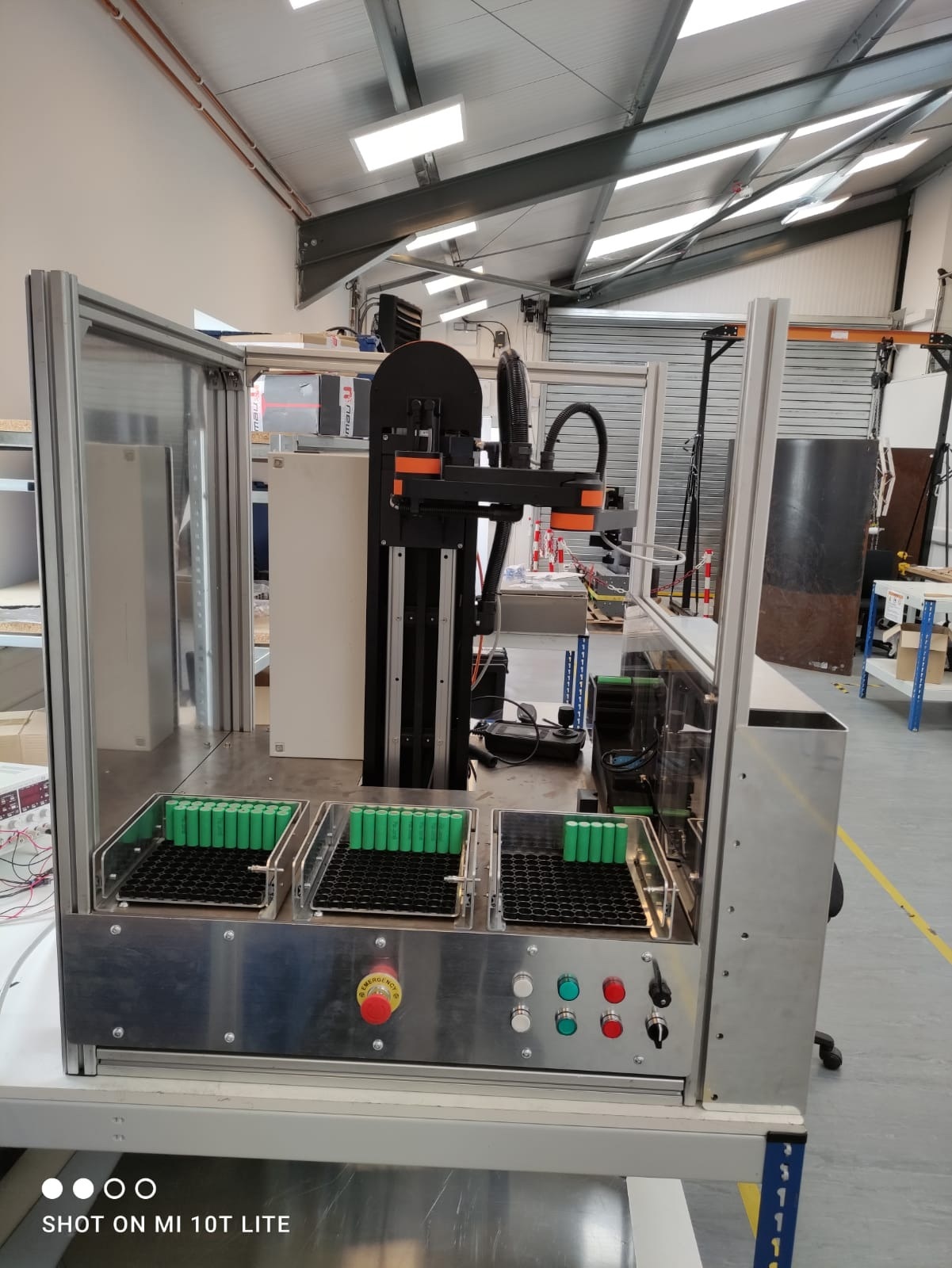An automated system that can detect the health of individual cells taken from end of life battery products, such as those used in EV’s, and sort them according to their state of health has been successfully developed in the UK. Cells with a state of health that is above 70% can then be repurposed for further use.

Image Credit: Aceleron Ltd
The system, which relies on a combination of robotics, software and automation, has the potential to significantly reduce the unnecessary waste of the raw materials used to build batteries.
Following funding from Innovate UK, the project has been underway since May 2021, drawing on the expertise of four different organisations:
- Aceleron, the firm responsible for designing and building the only batteries that can be taken apart for servicing, repair and upgrade, reducing battery waste and creating a battery with the chance of an infinite lifespan
- Innvotek Ltd, which specialises in the automation of inspection, maintenance and the digitisation of processes
- MEV, an ultrasonics specialist company that provides equipment and expertise in operating systems and bespoke application software
- Brunel Innovation Centre, which supplies academic research that can be transferred into industrial applications and developed the ultrasonic inspection technique
Carlton Cummins, Aceleron’s CTO and co-founder said: ‘“The average EV battery uses over 3,000 individual cells. When that battery reaches the end of its life, we estimate that at least half of the cells will still have a state of health higher than 80%.
“As we increasingly turn to electricity to power our lives, the issue of battery waste is of serious concern and this new system has the potential to preserve cells that would otherwise have been discarded. With Lithium shortages being forecast as soon as 2035, this machine has enormous potential to preserve what is left - and ensure that we maximise the use of the raw materials used to make battery products.”
Michael Corsar, CTO, Innvotek added: “It has been a pleasure to work on this project. Although recycling batteries preserves some of the materials, it is not a particularly environmentally friendly process so using our automation skills to develop a product that has the potential to reduce battery waste so significantly has been a rewarding experience for the team.”
The group hopes to secure further funding in order to refine the technology and develop more systems so that more useable cells can be repurposed in future.